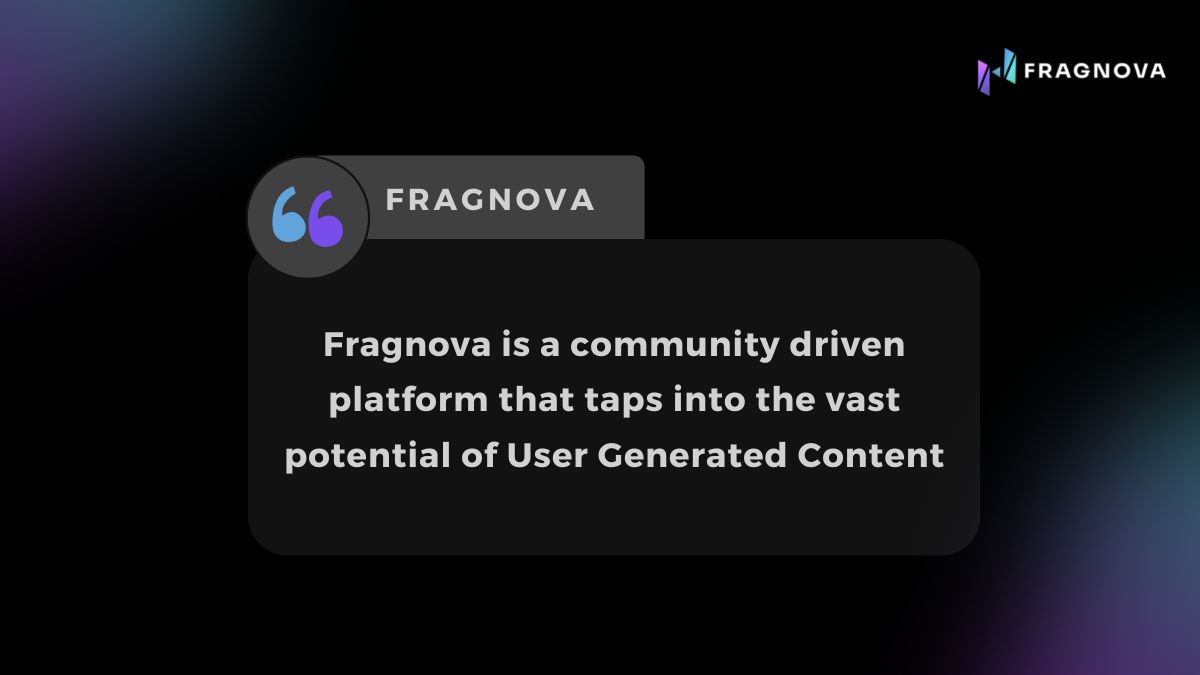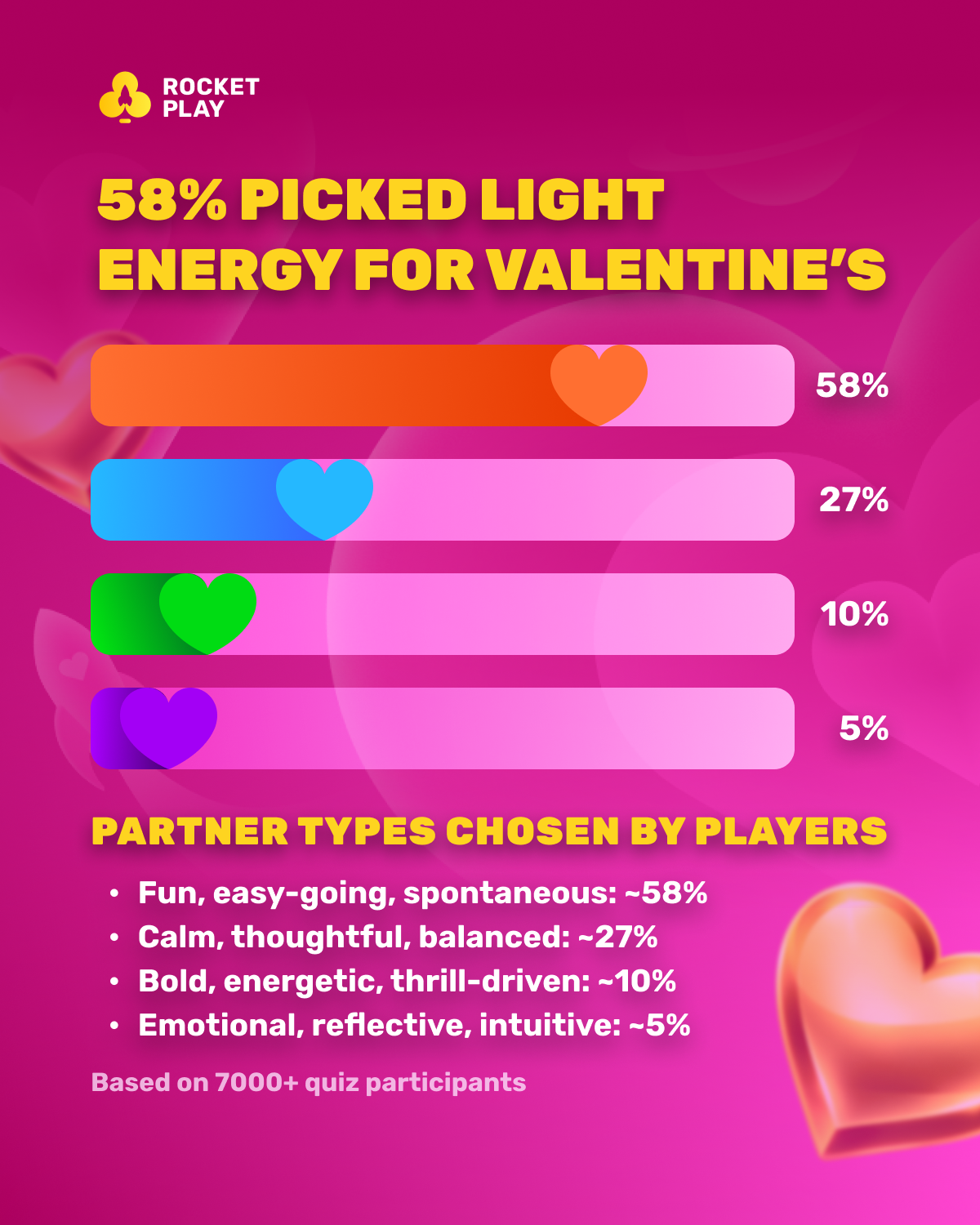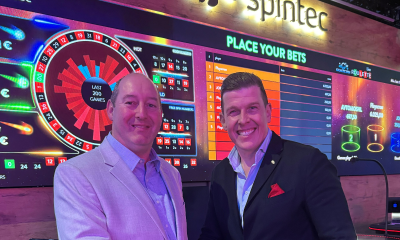Gaming
Fragnova aims to put creators first with its decentralised approach to game development

Fragnova’s vision of a decentralised game creation platform underpinned by the blockchain begins to take shape as the company shares its roadmap – including the imminent closed Alpha of its asset marketplace
In the latest step on its journey to empower game creators and democratise game development using decentralised technology, Fragnova has released its development roadmap to the end of 2023 and its planned full launch of the Fragnova marketplace.
The roadmap’s release comes in the wake of the company securing $3 million in its second round of its $FRAG token pre-sale, increasing the amount invested in Fragnova to date to $5.6 million from companies including Animoca Brands, Lemniscap and Hof Capital.
Founded by Giovanni Petrantoni in 2021, Fragnova’s aim is for the revenues in games to be distributed more equitably for those who work on them through the creation of a decentralised gaming ecosystem underpinned by blockchain technology.
Uniquely, the blockchain element means game developers and players will be able to sell game assets – like 3D models or fully functioning games – with the usage (and therefore royalties) of their creations automatically recorded thanks to the use of its own blockchain to assert the ownership and licensing rights.
The marketplace is made up of the Gamer Store, aimed at gamers and consisting of in-game items or playable experiences (similar to elements of Playstation Dreams), and the Creator Store – a marketplace for developers filled with assets like 3D models, scripts or audio.
Every item uploaded to Fragnova can be “detached” from the Fragnova chain and migrated into many other chains (for example, Ethereum), allowing creators to sell and trade items on any possible platform, and the data linked to each item is permanently stored on the Fragnova chain.
Another key element of the company’s planned ecosystem is Claymore, a game engine also built using decentralised technologies. Compared with incumbents like EPIC or Unity, Claymore is unique as it ties in with the Fragnova gamer store, allowing developers to seamlessly mint (upload) their creations to the marketplace.
The company is developing several games with the Fragnova Network as a proof of concept, including Ambal Duels, an RPG-inspired digital card game, and Rythym Run, a 2D side-scrolling multiplayer run-and-gun game where players attack by using rhythm – with planned alpha’s for both games in Q2 2023 and Q3 2022 respectively.
“I hope the roadmap serves as a statement of intent for Fragnova’s mission. We’re building momentum, and when these different elements come together, we want to disrupt the long-held status quo in the gaming industry, develop a create-to-earn economy, and give power back to developers who have too often got a raw deal for their work. NFTs and Crypto have given blockchain technology a bad reputation in recent years, but since the bubble burst, I believe we’re now coming to a stage where people will be able to see the true value it will bring to the industry,” said Giovanni Petrantoni, President and Founder of Fragnova.
Prior to founding Fragnova, Giovanni built game engines as a Senior Software Developer at Silicon Studio, the largest Japanese game engine developer owned by industry heavyweights including Sony PlayStation and Square Enix.
Powered by WPeMatico
Gaming
58% of respondents like the“warmy” archetype. Rocket Match by RocketPlay became “ Valentine’s Tinder in Gaming”.

This Valentine’s, RocketPlay tested a playful idea: players who seek thrills in gaming don’t necessarily want intensity in everything — including relationships. Instead of asking users to pick a “perfect partner,” RocketPlay launched Rocket Match, a fast, flirty quiz that matches players with a vibe: Bold, Sunny, Dreamy, or Adventurous.
Early Results Flip the Stereotype
Around 58% of participants matched with the Sunny archetype — defined by warmth, charm, and easy-going fun. The experiment suggests that when it comes to Valentine’s, RocketPlay’s community prefers light-hearted connection over drama or high stakes.
What Rocket Match Is
Rocket Match is a Valentine’s matchmaking quiz built inside the RocketPlay Universe. Players answer five simple, no-wrong-answer questions and instantly discover their match vibe.
The goal: move away from typical Valentine’s content that swings between overly serious romance or clichéd tropes. Rocket Match keeps it flirty, playful, and moment-focused, letting players discover a vibe rather than a label.
The four vibes include:
-
Bold – confident, high-energy, loves bigger sparks
-
Sunny – easy-going, playful, social, effortlessly charming
-
Dreamy – soft, romantic, focused on atmosphere and emotion
-
Adventurous – playful risk-taker, spontaneous, curious
Community Insights from Rocket Match
The quiz quickly gained traction, with 7,000+ completions, revealing a strong preference: Sunny, the archetype defined by warmth, lightness, and charm.

Alex Martin, PR Lead at RocketPlay, said:
“What we liked most about Rocket Match is how clearly it captured the mood people actually want on Valentine’s. It wasn’t about labels or big statements — it was about light energy, easy chemistry, and a feel-good kind of connection. That’s the vibe we try to build across the brand: simple to join, fun in the moment, and positive without the drama.”
Why It Matters
Rocket Match was more than a Valentine’s gimmick. It offered a snapshot of what RocketPlay’s community enjoys most: light energy, playful interaction, and feel-good connections. By turning a pop-culture moment into a small experiment, RocketPlay gained insight into player preferences, informing how the brand continues to design engaging, fun, and positive experiences.
The post 58% of respondents like the“warmy” archetype. Rocket Match by RocketPlay became “ Valentine’s Tinder in Gaming”. appeared first on Eastern European Gaming | Global iGaming & Tech Intelligence Hub.
Gaming
58% of respondents like the“warmy” archetype. Rocket Match by RocketPlay became “ Valentine’s Tinder in Gaming”.

This Valentine’s, RocketPlay tested a simple idea: people who come to iGaming for thrill don’t necessarily want the same intensity in everything — including relationships. Instead of asking players to choose a “perfect partner,” we launched Rocket Match, a fast, playful quiz that matches players with a vibe — bold, sweet, dreamy, or adventurous.
Early results flipped the stereotype. Around 58% of participants matched with the same vibe — built around warmth, charm, and easy fun — suggesting that when it comes to Valentine’s, our community prefers light-hearted connection over drama or risk.
What Rocket Match is
Rocket Match is a Valentine’s matchmaking quiz built as a small cosmic adventure inside the gaming RocketPlay Universe. Players answer 5 light questions — no right or wrong answers — and instantly unlock a Rocket Match that compliments themself. The idea was simple: Valentine’s content online often swings between two extremes — overly serious romance or pure cliché. Rocket Match was created to do something different: keep it flirty, keep it playful, and let players discover a vibe that feels like a moment, not a label.
There were 4 vibes to match with:
Bold — confident, high-energy, loves a bigger spark and bolder choices.
Sunny — easy-going, lighthearted, funny, good communicator
Dreamy — softer, romantic, drawn to atmosphere and emotion.
Adventurous — playful risk-taker energy; spontaneous, curious, and always up for something new.
The lightweight Valentine’s experiment quickly gained traction, with 7,000+ players completing the quiz. The unexpected value came after: the answers revealed a clear preference in what players wanted Valentine’s to feel like — and that insight became the story.
Across responses, around 58% of participants landed on the same Rocket Match vibe — the “sunny” archetype. It’s defined by warmth, lightness, and easy charm: playful, social, and effortless to be around.
What it says about RocketPlay’s community
Rocket Match offered a clear read on the kind of Valentine’s energy players gravitate toward — and it’s lighter than the usual “high-stakes romance” stereotype. As Alex Martin, PR Lead, puts it: “What we liked most about Rocket Match is how clearly it captured the mood people actually want on Valentine’s. It wasn’t about labels or big statements — it was about light energy, easy chemistry, and a feel-good kind of connection. That’s the vibe we try to build across the brand: simple to join, fun in the moment, and positive without the drama.”
What started as a fun Valentine’s experiment quickly became a snapshot of what the community enjoys most: light energy, easy chemistry, and feel-good connection. Valentine’s was simply the right moment to test a playful, pop-culture format — and see what kind of “match” people gravitate toward.
The post 58% of respondents like the“warmy” archetype. Rocket Match by RocketPlay became “ Valentine’s Tinder in Gaming”. appeared first on Americas iGaming & Sports Betting News.
CEO of GGBET UA Serhii Mishchenko
GGBET UA kicks off the “Keep it GG” promotional campaign

A leading gaming brand in Ukraine has launched a collection of ads featuring the tagline “Keep it GG” as part of an extensive communications initiative. The videos are currently being broadcast on Ukrainian TV, online platforms, and the brand’s social media accounts.
“GG” (Good Game) started in video game culture, yet its significance has far surpassed the literal meaning of “well played.” Currently, it symbolizes a worldwide sign of honor and gratitude for the feelings exchanged following a match, no matter the outcome. This concept served as the basis for GGBET UA’s latest marketing campaign. The video series embodies a unique GG atmosphere: rather than using a conventional voiceover, it incorporates complete audio tracks; the narrative features both literal and metaphorical allusions to sports and esports terms, alongside in-game and casino aspects; and prominent Ukrainian footballers are among the main characters.
“Every game, every match, every tournament is a moment that brings people together. For us, it’s important that every interaction with GGBET gives users that good game feeling — an experience that outlives the result and leaves vivid emotions behind, just like after watching a match,” comments CEO of GGBET UA, Serhii Mishchenko.
Going beyond the traditional view of GG also signifies a more profound implication — the brand’s strategic focus. The international brand, which has concentrated on esports for several years and attained significant success in esports betting and collaborations, is now adopting best practices to enhance traditional sports in regional markets. GGBET UA showcases a wider strategy for Good Game via collaborations (FC Dynamo Kyiv, FC Polissya, and the Ukrainian Basketball Federation), by organizing its own events and special projects, including initiatives that blend sports with esports, like the Match of LeGGends: Derby showmatch on the server featuring esports athletes and football players.
The brand’s creative team collaborated with a Ukrainian advertising agency and a Ukrainian production company to develop the commercials. GGBET UA made this choice to assist the local creative sector amid the war.
The post GGBET UA kicks off the “Keep it GG” promotional campaign appeared first on Eastern European Gaming | Global iGaming & Tech Intelligence Hub.
-

 Aphrodite’s Kiss5 days ago
Aphrodite’s Kiss5 days agoLove on the Reels: Slotland Introduces “Aphrodite’s Kiss”
-

 Amusnet5 days ago
Amusnet5 days agoWeek 7/2026 slot games releases
-

 Denmark6 days ago
Denmark6 days agoRoyalCasino Partners with ScatterKings for Company’s Danish Launch
-

 Baltics6 days ago
Baltics6 days agoEstonia to Reinstate 5.5% Online Gambling Tax From March 1
-

 Booming Games6 days ago
Booming Games6 days agoTreasure Hunt Revival — Booming Games Launches Gold Gold Gold Hold and Win
-

 Brino Games5 days ago
Brino Games5 days agoQTech Games integrates more creative content from Brino Games
-

 ELA Games6 days ago
ELA Games6 days agoELA Games Unveils Tea Party of Fortune — A Magical Multiplier Experience
-

 Bet Rite6 days ago
Bet Rite6 days agoSpintec Expands into Canada with Bet Rite




















